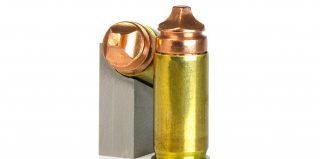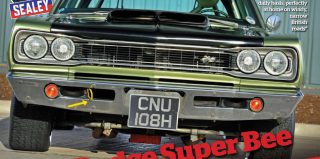Zipcar Introduces Car Sharing Program in Collingswood, NJ CAMBRIDGE, Mass. , Sept. 29, two thousand eleven /PRNewswire/ — Zipcar, Inc. (Nasdaq: ZIP), the world’s leading car sharing network, and the Borough of Collingswood , today announced Zipcar’s expansion into Collingswood, Fresh Jersey , located just ten minutes outside of Philadelphia .
Amnesty International
Choose language
The Seleka militia (meaning “alliance” in Sango, the national language) was responsible for widespread and systematic human rights manhandles in the Central African Republic (CAR) over the course of 2013. After a murderous rampage that commenced in the north-east, the Seleka spread out across the country, seizing the capital Bangui and ousting then-President François Bozizé in March 2013. Over the following ten months, Seleka coerces killed uncountable civilians, burned numerous villages, and looted thousands of homes. (See Amnesty International, CAR: Human rights crisis spiralling out of control, AFR Nineteen/003/2013.)
The arbitrary and abusive nature of the Seleka’s rule helped give rise to the current high level of sectarian hostility. The majority of the country’s population is Christian, as was former President Bozizé. Seleka leader Michel Djotodia, who served as the country’s transitional president until ten January 2014, is Muslim, as are most members of the Seleka compels.
Seleka manhandles spurred the emergence of the loosely organized “anti-balaka” militia (“machete proof” in Sango), made up of Christians and animists opposed to Seleka rule. In the last four months of 2013, anti-balaka fighters carried out horrific attacks on Muslim communities, particularly in CAR’s northwest, including on many villages around the town of Bossangoa.
A daring five December two thousand thirteen anti-balaka attack on Bangui led to an explosion of violence, tearing whatever was left of the country’s social fabric. After the Seleka compels managed to repel the anti-balaka offensive they carried out an extensive series of reprisal attacks against Christians in the city. Albeit the Seleka in some cases claimed to be pursuing anti-balaka militants, they did not make a meaningful effort to distinguish inbetween militants and non-militants, killing inbetween eight hundred to 1,200 people, primarily civilian fellows.
French military coerces with a UN mandate began their deployment in CAR during the early December violence, joining a puny African-led peacekeeping force that was already deployed there. They are due to be joined in the near future by up to 1,000 European Union troops, which will mitt over to a larger UN peacekeeping mission in September 2014.
How has the situation in CAR evolved since January 2014?
The situation in CAR switched significantly after the resignation of President Michel Djotodia on ten January 2014, and the election of a fresh interim president, Catherine Samba Panza soon after.
As soon as Djotodia left office, Seleka compels began to withdraw from their outposts across the country. In town after town, when the Seleka left, the anti-balaka militia moved in and launched violent attacks against the Muslim minority. Because international peacekeeping compels were utterly slow to deploy across the country, the field was open to the anti-balaka to assert their power and authority. They killed many hundreds of Muslim civilians, sometimes in large-scale massacres, looted Muslim homes and shops, and burned and ruined mosques. Among their victims were women and youthfull children; in some cases entire families were killed. Their stated aim was to rid the country of Muslims forever.
Anti-balaka fighters are now the main perpetrators of violence, especially in Bangui and in the western third of the country. Seleka compels that retreated to the north also proceed to commit serious human rights manhandles in the territory under their control. There is presently no functioning justice system in CAR, with little or no possibility of police investigations, court proceedings, and incarceration, resulting in total impunity for human rights violations.
Latest months have witnessed massive ethnic cleansing: a coerced exodus of ems of thousands of Muslim civilians to neighbouring Chad, Cameroon and Democratic Republic of the Congo (DRC). Much of this newly-created refugee population is living in makeshift camps where conditions are dire.
The few thousand Muslims who remain in the capital and the western part of the country (where they used to represent about fifteen percent of the population) are almost all displaced. Many are taking refuge in churches, and most are waiting for evacuation, fearing attacks by anti-balaka fighters.
There are still more than 650,000 internally displaced people inwards CAR. Thousands of houses have been looted and burnt, leaving many people – Christians and Muslims alike – without a home to come back to.
Civilians are being targeted along religious lines, but not because of their religious beliefs or practices. Albeit different religious communities lived peacefully together for generations, intermarrying and living in mixed neighbourhoods, mistrust and even hatred now separates many members of different religious communities. Religion is viewed as a critical indicator of one’s loyalties to the country’s different armed groups.
Not all Christians and Muslims have embraced sectarian hatred. Indeed, many Muslim civilians have been protected by their Christian neighbours, or have sought – and found – protection in churches and Catholic missions. In addition, some Christians, especially women who married Muslim boys, have been threatened and harmed by the anti-balaka militia.
Amnesty International has characterized the coerced expulsion of Muslims from CAR as “ethnic cleansing”. (See CAR: Ethnic cleansing and sectarian killings in the Central African Republic, AFR Nineteen/004/2014.) Albeit the term does not have a formal definition under international law, a UN Commission of Experts has defined it as a “purposeful policy designed by one ethnic or religious group to liquidate by violent and terror-inspiring means the civilian population of another ethnic or religious group from certain geographic areas.” The anti-balaka militia groups each operate under a local guideline but with the common objective of ridding the country of its Muslim population. These acts can constitute crimes against humanity and war crimes.
How are the fresh transitional authorities dealing with armed groups?
The fresh government, led by President Catherine Samba-Panza, includes some representatives of the Seleka and anti-balaka militias. Negotiations are ongoing inbetween the government and militia leaders. This has led to various splits among both armed groups, especially on the question of disarmament.
About 8,000 Seleka fighters are still cantoned (but not yet disarmed) in military camps in Bangui and are expecting to benefit from a Disarmament Demobilization and Reintegration (DDR) process. While some anti-balaka are willing to disarm if they benefit from a similar package as the Seleka, radical leaders of both armed groups have told their members to keep fighting. The phenomenon is similar with the former army (Coerces Armées Centrafricaines or FACA), dispersed since the departure of President Bozizé. Along with former police and gendarmerie coerces, some ex-FACA agreed to reintegrate their positions under the supervision of international peacekeepers in Bangui. However others gathered in the north to form a fresh armed group called Renewal and Justice (RJ) and are recruiting anti-balaka fighters. RJ now controls a enormous territory along the border with Cameroon and Chad.
Several areas of the capital Bangui have increasingly come under the control of the anti-balaka militias, who have (especially since twenty two March 2014) launched repeated attacks on civilians and African Union-led peacekeepers of the International Support Mission to Central Africa (MISCA). The rest of the country generally remains out of control, as the government has no authority outside Bangui and relies on international peacekeepers. Some Seleka members who fled Bangui have regrouped in towns where peacekeepers are not present, especially in the country’s north-east, where they proceed to commit atrocities, and have not shown any readiness to disarm. Others have fled the country, mainly to Chad, raising serious questions about whether they will ever be brought to justice.
What happens to people fleeing the CAR?
Ems of thousands of people compelled to flee the violence in the CAR are now facing another humanitarian catastrophe in neighbouring countries including Chad, Cameroon and the Democratic Republic of the Congo. With the rainy season, the already desperate situation will quickly deteriorate unless shelter, food and medical facilities are urgently made available for them.
During a mission to Chad conducted in early March 2014, Amnesty International delegates found thousands of people from CAR who had been neglected by the Chadian authorities and humanitarian agencies, many suffering from severe malnutrition and with no shelter other than the shade of trees. Most of the camps where these people stay are too close to the border, contributing to enlargening insecurity and vulnerability of refugees.
How involved is the international community?
In December 2013, the UN Security Council authorized the deployment of international compels, now comprising around 6,000 African Union peacekeepers (MISCA) and Two,000 French troops (Sangaris). Yet these compels failed to deploy swiftly outside Bangui to protect civilians. On one April, the European Union launched a military operation of up to 1,000 troops (EUFOR-RCA) to be deployed in Bangui soon, to permit the redeployment of international troops already present there to go to other provinces. EUFOR RCA is intended as a “bridging mission” until a UN peacekeeping operation of around 12,000 troops and police can deploy in the CAR, which is expected by fifteen September 2014.
What is Amnesty International calling for?
We are calling on the international community:
To provide MISCA and other international peacekeeping coerces with sufficient resources to enhance their capacity to rapidly deploy in all regions of the country in order to protect civilians effectively, especially in and around IDP sites and remote towns where Muslims are still present. To instantly commence contingency preparations and planning for the transformation of MISCA into a United Nations peacekeeping operation, as requested by Security Council resolution two thousand one hundred twenty seven (2013). To ensure slick coordination among all military compels present in CAR, including the MISCA, French coerces (Sangaris), and EUFOR RCA. To accelerate the disarmament process and ensure that no state is supporting in any way or providing arms to militias active in CAR, as prohibited by the UN arms embargo (resolution two thousand one hundred twenty seven – 2013). To expedite the effective deployment and coordinate the activities of the various human rights monitors, including the international Commission of Inquiry, in order to help identify the perpetrators of human rights violations, including crimes under international law, and ensure that they are held accountable. To ensure the prompt reconstitution of the judiciary and other justice figures, including courts, prisons, and prosecutorial agencies. To ensure that refugees who flee to neighbouring countries are identified and receive adequate protection through an effective cooperation inbetween the UN Refugee Agency (UNHCR) and the national authorities of Chad, Cameroon and the DRC.



